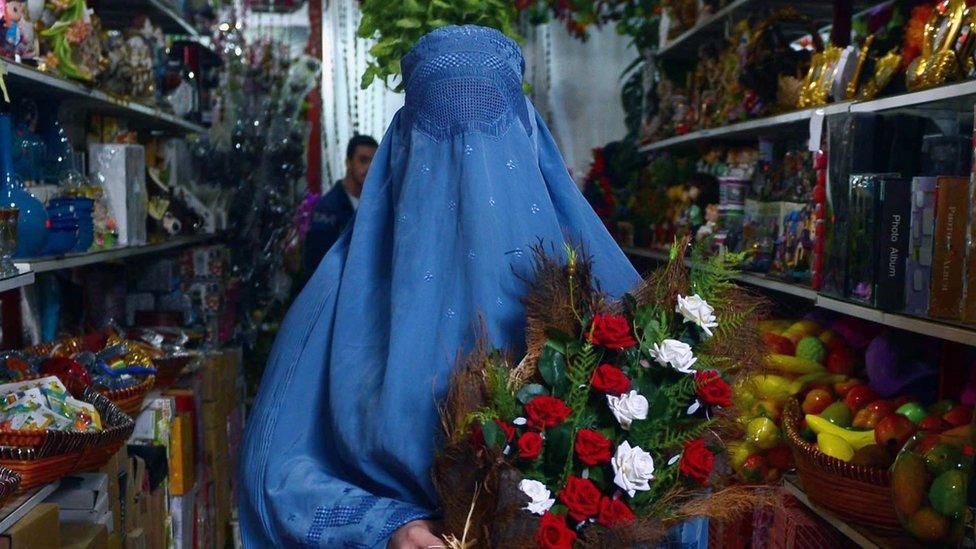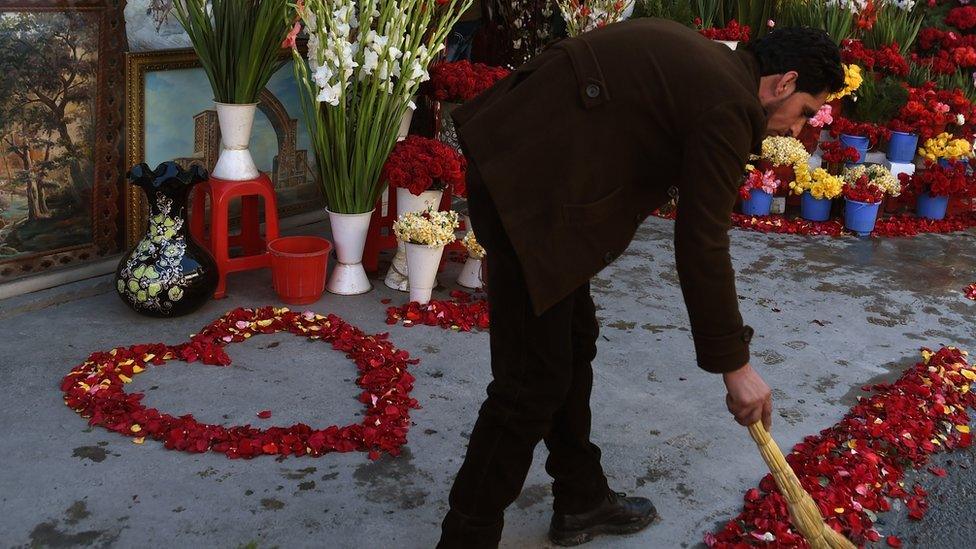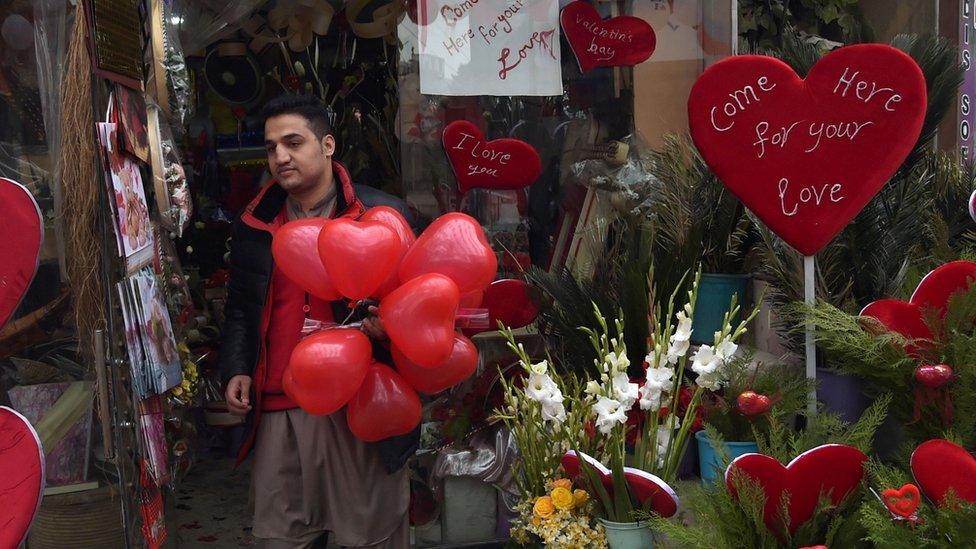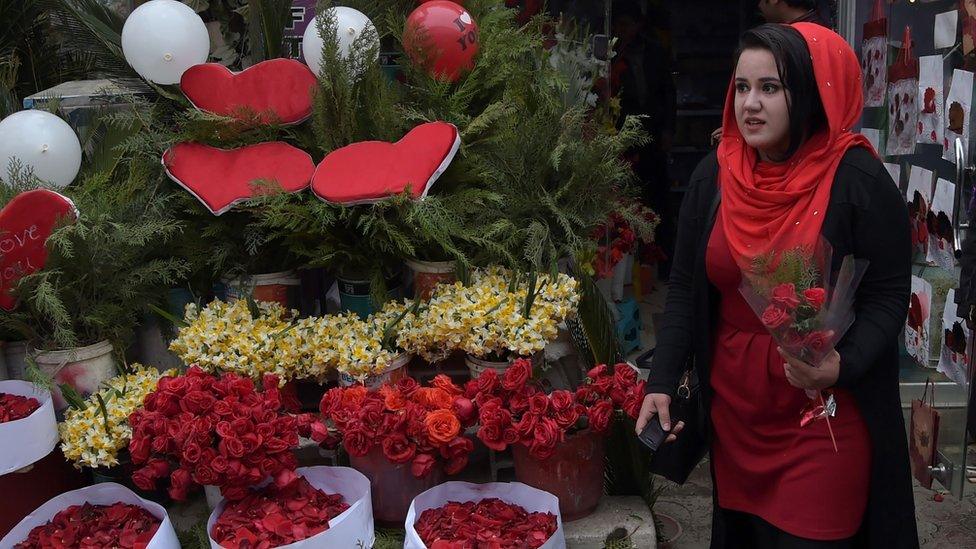100 Women: The Afghan women celebrating Valentine's Day
- Published

In the centre of Kabul I come across multiple shop-fronts decorated in a style which has become familiar to us in the past few years, writes BBC Pashto journalist Shafiqa Khpalwak.
There are bouquets of red and white roses, heart-shaped balloons and empty boxes beautifully wrapped and placed on top of each other.
Yes, Valentine's Day is just around the corner and love is in the air.
For a moment it all looks surreal. Kabul has witnessed multiple terrorist attacks during the past month, with more than a hundred killed and many more injured.
Yet among all this fear and hopelessness the people of this ancient city, as they have often been forced to do in recent years, just get along with their daily lives.
Valentine's Day is one of the few occasions when young people in Kabul give themselves a reason to celebrate - and to love.
I cannot help but think what it meant to love - and to be loved - in Afghanistan. We are by no means aliens to this human emotion, but our men are never good at talking about it and our women aren't allowed to express it.

I decide to ask Afghan women if they had ever been in love.
A woman in her mid-thirties who wants to stay anonymous tells me she fell in love more than eight years ago. When her mother found out, she told her own brothers "to 'get rid of me'.
"I was attacked by them multiple times," she says.
"Every time they came to kill me I would run to the room and grab a copy of the Holy Koran.
"I cried and begged them to forgive me, to let me live for the sake of the Koran. I somehow survived.
"But after what happened in the family no one has ever come to ask for my hand in marriage. People don't think I am clean enough for their sons."
Just a week ago BBC Pashto published an online story about the killing of a young couple just across the border in the Federally Administered Tribal Areas (FATA).
Their sin? Falling in love and running away from home in order to get married.

Often in such cases the two families are at each other's throat. This time however they joined hands, sent a message to the couple that they had accepted their decision and it was time for them to return home. The trustful couple agreed.
On returning to the village they were shot at and killed as soon as they stepped out of the vehicle. The authorities promised to take action but judging by previous records one can't hope for much.
A student tells me other girls in her class stopped talking to her after they found out she was in love with a man.
Some students say they were still looked down on, even when they married the person they love.
"My sister-in-law told me I had no honour, because I had had an affair with her brother," one girl tells me.
Things are different for men. Afghan men boast about having girlfriends and lovers.
If things go wrong men will be protected by their families and mothers, but for the women involved in the same love affair things end up in shame, social isolation and even death.
But there are women who believe love is worth all the trouble.

"My friends are not happy about my relationship but I don't care," says one young woman.
"I know my mother will kill me if she finds out; she will accuse me of bringing shame to the family.
"But it's all worth it when you are in love. You don't plan on falling in love. It just happens to you."
I think about our poetry and literature, about how women poured their hearts out in those verses; confessing their love to their beloved. Were they a different breed of Afghan women?
For me, the legacy of those women still lives on through the brave young women of Afghanistan today who dare to fall in love against all odds.


What is 100 women?
BBC 100 Women names 100 influential and inspirational women around the world every year and shares their stories. Find us on Facebook, external, Instagram, external and Twitter, external and use #100Women
Other stories you might like:
The female protesters against giving women the vote